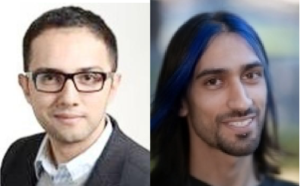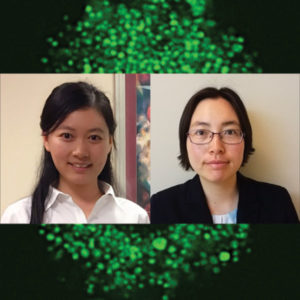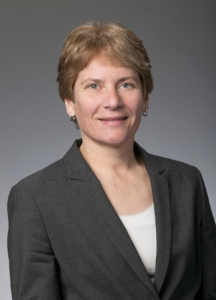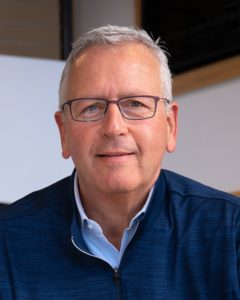
Thursday MIPS Roundtable: Meet our MIPS Instructors
1:30-2:00 PM | Dr. Katie Wilson, Ph.D.
“Optical and Acoustic Molecular Imaging to Identify Lymph Node Metastasis in Head and Neck Cancer.”
Instructor, Radiology
Stanford University
2:00-2:30 PM | Dr. Corinne Beinat, Ph.D.
“Molecular Imaging of Tumor Metabolism”
Instructor, Radiology
Stanford University
MIPS Roundtables are every other Thursday from 1:30-2:30pm showcasing various topics and are open to all interested.
Please note Zoom information does change week to week.
6/11 Meeting URL: https://stanford.zoom.us/j/95475611159
Dial: +1 650 724 9799 or +1 833 302 1536
Meeting ID: 954 7561 1159

Stanford School of Medicine’s
1st Annual Conference on Disability in Healthcare and Medicine
Saturday, June 20, 2020
8:00am – 2:30pm Pacific Daylight Time (PDT)
Zoom Webinar
The conference goals are:
- Supporting students and healthcare providers with disabilities
- Training healthcare providers to better care for patients with disabilities
- Research into the intersection of providers and patients with disabilities
Target audience:
- Nursing students and nurses
- PA students and PA’s
- Medical students and medical doctors
- All other interested healthcare providers and allies

Thursday MIPS Roundtable: Faculty Lab Showcase
MIPS Roundtables are every other Thursday from 1:30-2:30pm showcasing various topics and are open to all interested.
1:30-2:00 PM | Dr. Brian Rutt, Ph.D.
Cellular & Molecular MRI Laboratory (CMMRIL)
Professor of Radiology
Stanford University
2:00-2:30 PM | Dr. Kathy Ferrara, Ph.D.
Ferrara Laboratory: Image-guided Drug Delivery
Professor of Radiology
Stanford University
Please note Zoom information does change week to week.
6/25 Webinar URL: https://stanford.zoom.us/j/91635637393?pwd=c09vUXYyeU5VeHJBaUJVRHQrT3FJdz09
Dial: +1 650 724 9799 or +1 833 302 1536
Webinar ID: 916 3563 7393
Webinar Password: 271364

Thursday MIPS Roundtable: Meet our MIPS Instructors
MIPS Roundtables are every other Thursday from 1:30-2:30pm showcasing various topics and are open to all interested. Note we will take a break through late July and August.
1:30-2:00 PM | Dr. Ahmed El Kaffas, Ph.D.
Translational Ultrasound for Tissue Characterization and Stimulation
Instructor, Radiology
Stanford University
2:00-2:30 PM | Dr. Brett Fite, Ph.D.
Combining Focal and Immunotherapies
Instructor, Radiology
Stanford University
Please note Zoom information does change week to week.
7/9 Webinar URL: https://stanford.zoom.us/j/91909413178
Dial: +1 650 724 9799 or +1 833 302 1536
Webinar ID: 919 0941 3178
Password: 572746

Thursday MIPS Roundtable: Meet our MIPS Instructors
MIPS Roundtables are Thursdays from 1:30-2:30pm showcasing various topics and are open to all interested. Note this will be our last summer Roundtable and we will take a break through late July and August.
1:30-2:00 PM | Dr. Josquin Foiret, Ph.D.
High throughput ultrasound imaging for improved diagnosis
Instructor, Radiology
Stanford University
2:00-2:30 PM | Dr. Jinghang Xie, Ph.D.
TESLA probes for imaging T cell-mediated cytotoxic response to immunotherapy
Instructor, Radiology
Stanford University
Please note Zoom information does change week to week.
7/16 Webinar URL: https://stanford.zoom.us/j/94952044130
Dial: +1 650 724 9799 or +1 833 302 1536
Webinar ID: 949 5204 4130
Password: 963699

Stanford Molecular Imaging Scholars (SMIS) Program Quarterly Seminar
Zoom meeting: https://stanford.zoom.us/j/99117388314?pwd=R29OSjlTdUt0a3pLaG5Zc1BFNTJIUT09
Password: 922183
Guolan Lu, PhD
Mentor: Eben Rosenthal, MD; Garry Nolan, PhD
“Co-administered Antibody Improves the Penetration of Antibody-Dye Conjugates into Human Cancers: Implications for AntibodyDrug Conjugates”
Dianna Jeong, PhD
Mentors: Craig Levin, PhD; Shan Wang, PhD
“Novel Detection Approaches for Achieving Ultra-fast time resolution for PET”

Join us for the 3rd Annual Diversity and Inclusion Forum on Friday, October 9, 2020 on Zoom! This virtual event will highlight innovative workshops developed by our residents and fellows with their educational mentors who have participated in the 2019-2020 cohort of the Leadership Education in Advancing Diversity Program.
The event will be an enriching opportunity for all faculty, residents, fellows, postdocs, students, staff, and community members to learn tools and strategies to enable them to become effective change agents for diversity, equity, and inclusion in medical education.
All are welcome to participate and we look forward to seeing you on Friday, October 9!
Register here:
https://mailchi.mp/046c21726371/diversityforum2020-1632872?e=4a913cab2d

In honor of the 30th anniversary of the Americans with Disabilities Act and October as National Disability Employment Awareness Month, join the Stanford Medicine Abilities Coalition (SMAC) for a first of its kind StanfordMed LIVE event focused on disability. Now more than ever during the COVID-19 pandemic, disabilities, health conditions, and illness impact not only our patients but also all of us, both personally and as members of the Stanford Medicine community. Stanford Medicine leadership will share information, answer questions, and engage in a roundtable discussion about the state of disability at Stanford and how best to support faculty, staff, and students living with disability and chronic illness. We encourage our community to submit questions and comments here to be shared broadly with the Stanford Medicine community. The same link can be used to request any accommodations needed for the livestream. Additional information for the webcast itself will be sent out closer to the event.
Livestream link: https://livestream.com/accounts/1973198/events/9288854

MIPS Seminar Series: Translational Opportunities in Glycoscience
Carolyn Bertozzi, PhD
Director, ChEM-H
Anne T. and Robert M. Bass Professor in the School of Humanities and Sciences
Professor, by courtesy, of Chemical and Systems Biology
Stanford University
Location: Zoom
Webinar URL: . https://stanford.zoom.us/j/94010708043
Dial: US: +1 650 724 9799 or +1 833 302 1536 (Toll Free)
Webinar ID: 940 1070 8043
Passcode: 659236
12:00pm – 12:45pm Seminar & Discussion
RSVP Here
ABSTRACT
Cell surface glycans constitute a rich biomolecular dataset that drives both normal and pathological processes. Their “readers” are glycan-binding receptors that can engage in cell-cell interactions and cell signaling. Our research focuses on mechanistic studies of glycan/receptor biology and applications of this knowledge to new therapeutic strategies. Our recent efforts center on pathogenic glycans in the tumor microenvironment and new therapeutic modalities based on the concept of targeted degradation.
ABOUT
Carolyn Bertozzi is the Baker Family Director of Stanford ChEM-H and the Anne T. and Robert M. Bass Professor of Humanities and Sciences in the Department of Chemistry at Stanford University. She is also an Investigator of the Howard Hughes Medical Institute. Her research focuses on profiling changes in cell surface glycosylation associated with cancer, inflammation and infection, and exploiting this information for development of diagnostic and therapeutic approaches, most recently in the area of immuno-oncology. She is an elected member of the National Academy of Medicine, the National Academy of Sciences, and the American Academy of Arts and Sciences. She also has been awarded the Lemelson-MIT Prize, a MacArthur Foundation Fellowship, the Chemistry for the Future Solvay Prize, among many others.
Hosted by: Katherine Ferrara, PhD
Sponsored by: Molecular Imaging Program at Stanford & the Department of Radiology

MIPS Seminar Series: “Convergent, translational research to improve human health”
Joseph M. DeSimone, PhD
Sanjiv Sam Gambhir Professor of Translational Medicine and Chemical Engineering
Departments of Radiology and Chemical Engineering
Graduate School of Business (by Courtesy)
Stanford University
Location: Zoom
Webinar URL: https://stanford.zoom.us/s/98460805010
Dial: +1 650 724 9799 or +1 833 302 1536
Webinar ID: 984 6080 5010
Passcode: 809226
12:00pm – 12:45pm Seminar & Discussion
RSVP Here
ABSTRACT
In many ways, manufacturing processes define what’s possible in society. Central to our interests in the DeSimone laboratory are opportunities to make things using cutting-edge fabrication technologies that can improve human health. This lecture will describe advances in nano- / micro-fabrication and 3D printing technologies that we have made and employed toward this end. Using novel perfluoropolyether materials synthesized in our lab in 2004, we invented the Particle Replication in Non-wetting Templates (PRINT) technology, a high-resolution imprint lithography-based process to fabricate nano- and micro-particles with precise and independent control over particle parameters (e.g. size, shape, modulus, composition, charge, surface chemistry). PRINT brought the precision and uniformity associated with computer industry manufacturing technologies to medicine, resulting in the launch of Liquidia Technologies (NASDAQ: LQDA) and opening new research paths, including to elucidate the influence of specific particle parameters in biological systems (Proc. Natl. Acad. Sci. USA 2008), and to reveal insights to inform the design of vaccines (J. Control. Release 2018), targeted therapeutics (Nano Letters 2015), and even synthetic blood (PNAS 2011). In 2015, we reported the invention of the Continuous Liquid Interface Production (CLIP) 3D printing technology (Science 2015), which overcame major fundamental limitations in polymer 3D printing—slowness, a very limited range of materials, and an inability to create parts with the mechanical and thermal properties needed for widespread, durable utility. By rethinking the physics and chemistry of 3D printing, we created CLIP to eliminate layer-by-layer fabrication altogether. A rapid, continuous process, CLIP generates production-grade parts and is now transforming how products are manufactured in industries including automotive, footwear, and medicine. For example, to help address shortages, CLIP recently enabled a new nasopharyngeal swab for COVID-19 diagnostic testing to go from concept to market in just 20 days, followed by a 400-patient clinical trial at Stanford. Academic laboratories are also using CLIP to pursue new medical device possibilities, including geometrically complex IVRs to optimize drug delivery and implantable chemotherapy absorbers to limit toxic side effects. Vast opportunities exist to use CLIP to pursue next-generation medical devices and prostheses. Moreover, CLIP can improve current approaches; for example, the fabrication of an iontophoretic device we invented several years ago (Sci. Transl. Med. 2015) to drive chemotherapeutics directly into hard-to-reach solid tumors is now being optimized for clinical trials with CLIP. New design opportunities also exist in early detection, for example to improve specimen collection, device performance (e.g. microfluidics, cell sorting, supporting growth and studies with human organoids), and imaging (e.g. PET detectors, ultrasound transducers). Here at Stanford, we are pursuing new 3D printing advances, including software treatment planning for digital therapeutic devices in pediatric medicine, as well as the design of a high-resolution printer capable of single-digit micron resolution to advance microneedle designs as a potent delivery platform for vaccines. The impact of our work on human health ultimately relies on our ability to enable a convergent research program to take shape that allows for new connections to be made among traditionally disparate disciplines and concepts, and to ensure that we maintain a consistent focus on the translational potential of our discoveries and advances.
ABOUT
Joseph M. DeSimone is the Sanjiv Sam Gambhir Professor of Translational Medicine and Chemical Engineering at Stanford University. He holds appointments in the Departments of Radiology and Chemical Engineering with a courtesy appointment in Stanford’s Graduate School of Business. Previously, DeSimone was a professor of chemistry at the University of North Carolina at Chapel Hill and of chemical engineering at North Carolina State University. He is also Co-founder, Board Chair, and former CEO (2014 – 2019) of the additive manufacturing company, Carbon.
DeSimone is responsible for numerous breakthroughs in his career in areas including green chemistry, medical devices, nanomedicine, and 3D printing, also co-founding several companies based on his research. He has published over 350 scientific articles and is a named inventor on over 200 issued patents. Additionally, he has mentored 80 students through Ph.D. completion in his career, half of whom are women and members of underrepresented groups in STEM. In 2016 DeSimone was recognized by President Barack Obama with the National Medal of Technology and Innovation, the highest U.S. honor for achievement and leadership in advancing technological progress. He is also one of only 25 individuals elected to all three branches of the U.S. National Academies (Sciences, Medicine, Engineering). DeSimone received his B.S. in Chemistry in 1986 from Ursinus College and his Ph.D. in Chemistry in 1990 from Virginia Tech.
Hosted by: Katherine Ferrara, PhD
Sponsored by: Molecular Imaging Program at Stanford & the Department of Radiology